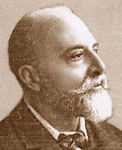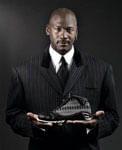Field Hockey player
1. INTRODUCTION
Study after study has indicated that the most influential coach in the development of a young athlete and his career is his first coach. The first coach is the one who will lay a solid foundation for the athlete.
As the athlete grows, it is up to both of them – coach and athlete – to decide what they would like to climb … a mountain or a hill. It is this first coach that has the power to sow the seeds of greatness in the athlete, to inspire them to challenge themselves beyond the ordinary.
It is sad to note that most young athletes are offered unskilled coaches in their earliest years. Unfortunately, an inexperienced coach does more harm than good to the long term development of the young athlete.
It is much easier to learn a new skill correctly the first time, than to correct the a poorly learned technique later.
2. FREQUENTLY ASKED QUESTIONS
2.1 Are world class athletes born or are they developed?
The stark truth is that world class athletes are developed and not born. In fact, when someone says, “He is a born champion”, nothing could be further than the truth.
What we overlook or don’t remember are the years of systematic training and daily quality coaching, which had been invested in developing this champion athlete, from the beginning.
2.2 How long does it take to develop a world class athlete in any given sport?
According to Dr Istvan Balyi of Canada, “Scientific research has concluded that it takes eight to ten years of training for a talented athlete to reach elite levels, This is known in the scientific literature as the 10-year or 10,000-hour rule. It translates into slightly more than three hours of deliberate practice daily for 10 years. Such a long-term commitment to training is required to produce elite athletes in any sport.
2.3 Does it matter that at what age the athlete starts training?
Yes, the age of first training matters; it will decide to what level will the athlete will ultimately reach and play. From my experience:
- Ages 5 – 8: An athlete should be first introduced to the game. Nurture a love for the game, make it a fun experience. As the athlete grows older, so does his/her devotion to the game.
- Ages 10 – 12: These are the critical years where athletes develop correct technique, good habits, execute basic skills and learn to play the game smartly. This is when the player’s foundation for the style of play is laid.
- Ages 13 – 14: This foundation is made stronger and is polished and refined as the athlete grows older. One point to keep in mind is that Field Hockey is a late specialization sport, compared to an early specialization sport like Gymnastics. The complex skills of field hockey need to be learned and mastered to a certain degree, before the maturation stage (age 14 for boys, age 12 for girls).
2.4 Should the young athlete play field hockey only, or play multiple sports; if multiple sports, until what age?
Young athletes should play other sports too. This is a must.
- Ages 5 – 12: I would strongly recommend the budding athlete playing football (soccer), basketball and tennis, as these sports are complementary to field hockey. The knowledge gained from these sports can easily be translated to field hockey.
- Ages 13 – 14: This is the optimum age when a child should start focussing single-mindedly on field hockey.
3. CASE STUDY
Please allow me to share the example of Ronnie Jagday, my son, who represented Canada in hockey in the Olympic Games, World Cup and the Pan Am games.
The following is a brief sketch of his development, first as an athlete, and later as a hockey player.

4. QUOTABLE QUOTES
Famous violinist Leopold Auer was asked by his student how many hours should he practice the violin:If you practice with your fingers, no amount is enough. If you practice with your head, two hours a day is plenty.

Author’s Note: When I see some athletes warming up or practicing without being mentally present, and simply going through the motions, and on top of this, hear them talking of things other than hockey, I politely advise them to focus with their heart, mind and soul. Otherwise, they are not doing justice to themselves and their teammates.
Michael Jordan, when asked about the optimum hours of basketball practice: You can practice shooting eight hours a day, but if your technique is wrong, then you will become very good at shooting the wrong way. However, if you get the fundamentals down, the level of everything you do will rise.

Author’s Note: If a young athlete in his mid-teens does individual training for 30-45 minutes in the morning, and for 2 hours, 5 times a week, he can become the Michael Jordan of field hockey, assuming all the other areas of the game preparation are covered.
